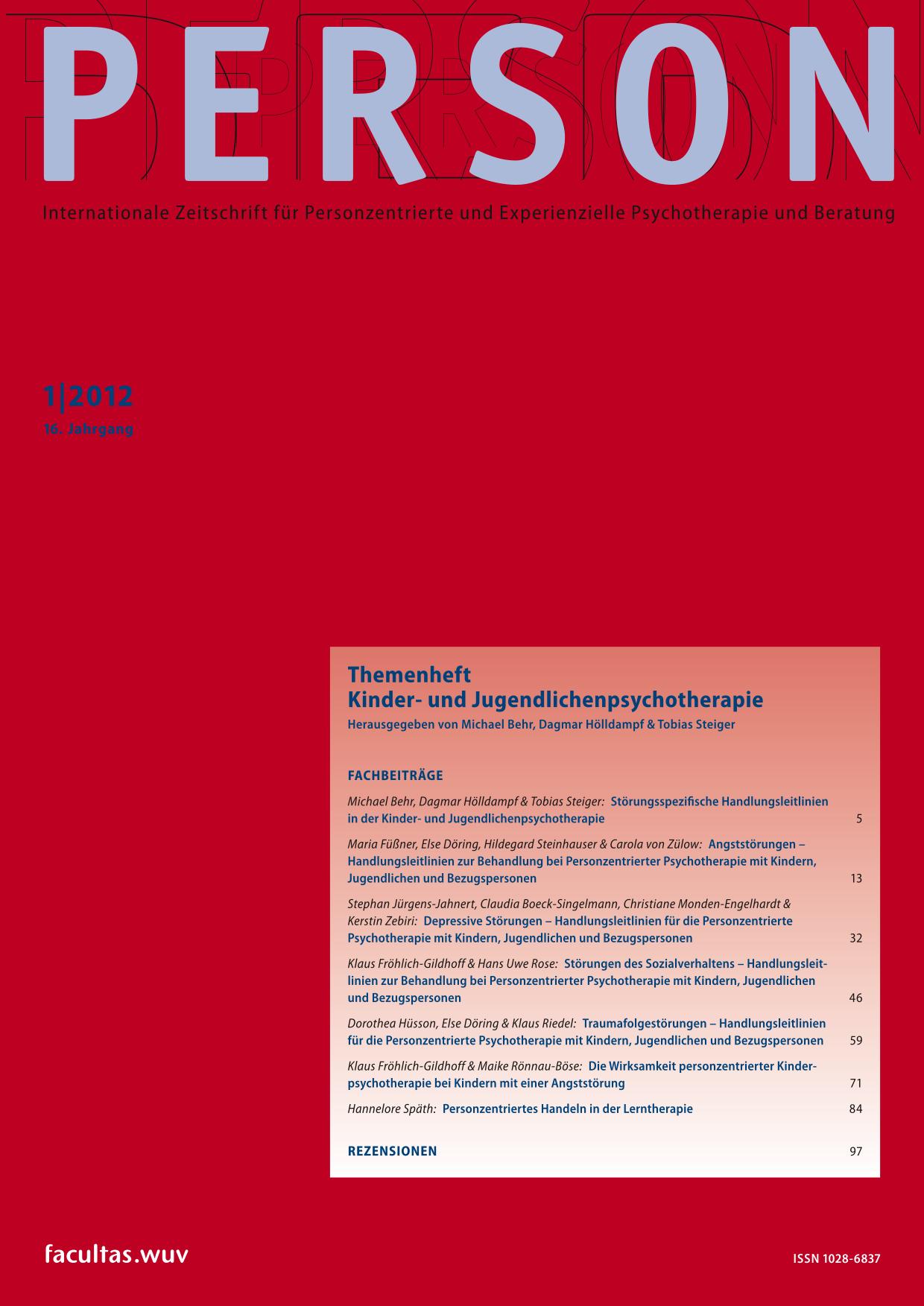Personzentriertes Handeln in der Lerntherapie
Main Article Content
Article Sidebar
Abstract
Person-centered work in Learning Therapy. People with dyslexia and those who have difficulties acquiring mathematical skills require learning therapy. Learning disabilities are complex problems. The academic issues they bring to light are compounded by the fact that they generate a great deal of mental stress. The Transactional Stress Theory provides a model within which learning disabilities can be reviewed and reflected upon. Furthermore, the model provides a basis for professional intervention. The most important components of a person-centered concept for learning therapy are its humanistic concept of mankind, resources-orientated philosophy, person-centered principles and its goal of psychic stability. The aims including person-centered work into learning therapy are to increase self-acceptance, restore motivation, develop improved coping strategies and attenuate academic problems. Person-centered learning therapy is a multimodal course of action. Characteristically, it is an extension of conventional educational therapy which aims to organize curative experiences and encourage a consistently elevated self concept.
How to Cite
Downloads
Article Details
learning therapy, client centered, person centered, learning disabilities, dyslexia, arithmetical disabilities, transactional stress theory, coping

